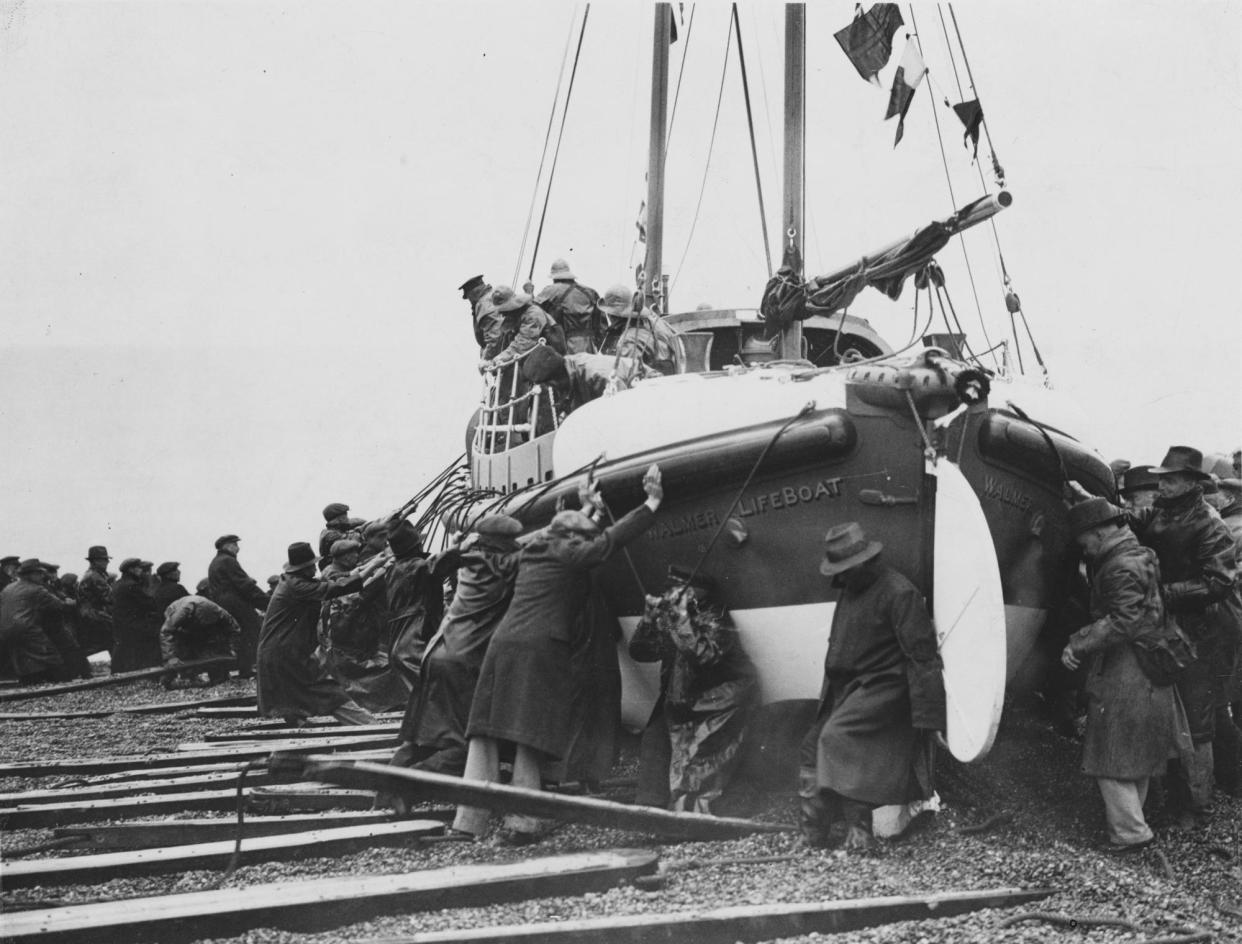RNLI celebrates 200th anniversary after saving nearly 150,000 lives

It was founded in a London tavern on 4 March 1824, a lifesaving service designed to go to the aid of the ships that crashed with alarming regularity on to the coasts of Britain and Ireland.
Exactly two centuries on, the Royal National Lifeboat Institution (RNLI) is launching its bicentenary celebrations and has calculated that it has, so far, saved a grand total of 146,277 lives, an average of two a day.
The charity said its volunteer crews had launched 380,328 times and its lifeguards, which began operating in 2001, had responded to 303,030 emergencies on beaches.
The RNLI chief executive, Mark Dowie, said the service’s work had transformed since it was founded in the City of London Tavern in Bishopsgate 200 years ago and was more likely to go to the aid of paddle-boarders, wild swimmers, fishing boat crews or people trying to reach the UK in small boats than stricken ships.
The former naval officer said: “In 1824, about 1,800 ships a year were crashing into the coasts of Britain and Ireland. The work for the next 120 years or so, was rescuing people from shipwrecks. The work has now changed dramatically.
“We were all about lifeboats and we’re now about life saving. We have a very strong, joined-up way of doing that. We have lifeboats, the lifeguard service that is on almost 250 beaches in the height the season around the UK and Northern Ireland, and we also focus very hard on our water safety education.”
Dowie said big changes in recent years had been the rapid increase in popularity of water activities. “That’s a good thing. If you go back 15 years, nobody had heard of paddle-boarding. Then there’s wild swimming. There are an awful lot of people of a certain age throwing themselves into cold water. It is fantastically good for you and for mental health. But it does mean people are putting themselves in danger at all times of the year in an environment that is unforgiving.”
The volume of work has increased vastly. For example, the lifeboat station at Salcombe in Devon launched twice in anger in its first seven years – 1869-76. “A traditional year at Salcombe now is between 50 and 70 shouts,” he said.
One of the RNLI’s biggest challenges in recent years has been rescuing people trying to get into the UK on small boats and it has been criticised for acting as a “migrant taxi service”.
Dowie said: “Right from the get-go in 1824, we said that the lifeboat service would rescue whoever needed our help wherever they are. We have been doing that for 200 years. We were pulling German airmen out of the Channel in the second world war.
“Our purpose is super-clear. We respond to moments of distress. The day that the RNLI turns round to the coastguard and says: ‘I’m awfully sorry, can you tell me where these people are from?’ before they respond, that’s the end as far as I’m concerned.
“We’re an organisation that is in the national consciousness. We are not immune from society. From time to time, we’re going to be criticised and I think that just goes for the territory.”
The charity was founded after an appeal from the philanthropist Sir William Hillary, who lived on the Isle of Man and witnessed many shipwrecks.
Over two centuries, there have been huge developments in lifeboats and kit, which have gone from the early oar-powered vessels to today’s technology-packed boats and from the rudimentary cork lifejackets of the 1850s to the full protective kit issued to each crew member.
Throughout its bicentenary year, the charity is running events and activities to remember its history and celebrate the modern incarnation. A service of thanksgiving to mark the anniversary will take place at Westminster Abbey on Monday.


